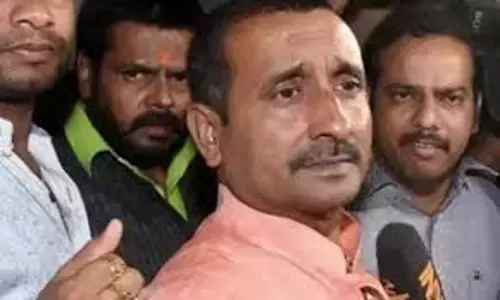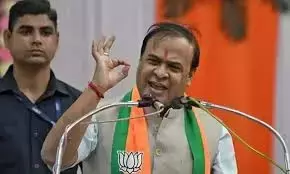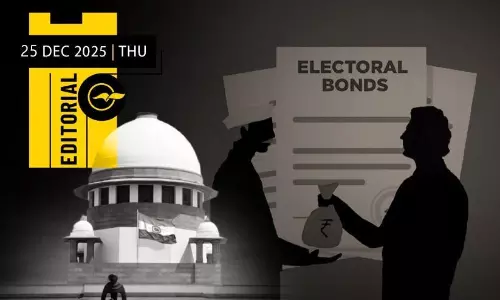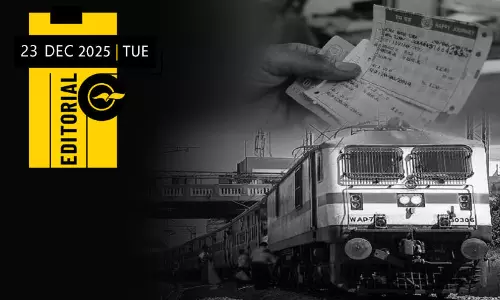
Privatizing Indian Railways
text_fieldsThe much awaited Bibek Debroy Committee report with proposals for restructuring of Indian Railways submitted to the government on Friday has sparked a controversy.
The high-level panel headed by economist Bibek Debroy, was formed by Prime Minister Modi in September last year to revamp the Railways and suggest ways for resource mobilization for railway projects. The committee has recommended entry of private companies, scraping of the Rail Budget, setting up an independent regulator, Railway Regulatory Authority of India, with a separate budget and a separation of roles of policy making, regulation and operations of the railway. The independent regulator would be mandated to fix freight rates, set technical standards and resolve disputes. The report lays down a roadmap to be implemented in the next five years after which there wouldn’t be a need for a separate Railway budget. The Ministry of Railways would only be responsible for policymaking as per the suggestions. Privatizing coach-wagon construction, security agency and consultancy for policy making are some of the suggestions by the committee. The over 300 page reports says since the main role of the Indian Railways was to run trains, operations like running schools and hospitals should be hived off. The decision making process, according to the committee should be decentralized so that divisional and zonal managers are empowered to take decisions quickly.
The report evidently recommends “privatisation in the name of liberalisation” and has angered the Trade Unions which demanded its scrapping. According to the government, it has accepted the private capital that has already found its way into the service sectors. The PM as well as the Railway Minister have denied the ‘privatisation’ accusations justifying its move saying that it meant liberalization and easing of restrictions and not privatizing the sector. The extent of shares belonging to the corporate companies matter, with more grave consequences as the share increases. During the tenure of UPA government, food distribution and freight transport was given to the private sectors partially or completely after which private participation was extended to other important sectors. According to the law issued by the Railway Board in 2011, private capital would be sought for the basic infrastructure development. The BOT model, functioning of special trains and the private companies that operate the railway tracks were also included in the suggestions.
Under Modi government, the Railway sector too is getting ‘privatised’ just like other national resources. Foreign capital is pouring in and the corporate companies are tightening its grip on the country with significant backing from the government. Being an important asset of the country, the attempts of the private companies wanting to have their share in the sector is predictable. No railway sector other than IRCTC has been able to function properly under the private companies. But consequences of privatization have to be evaluated and analysed appropriately. The entry of private players has led to the cheaper fares and better service in countries like Japan Britain and Germany, reportedly. But the failed privatization model of British Railways has forced the nation to join back the public sector. The Bibek Debroy report clearly paves way for the corporatization of Indian Railways which would turn Railways, an important asset, into just another train service provider in the country.






















